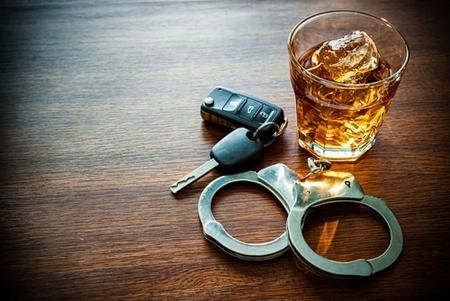What Are the Consequences of an Illinois DUI for Commercial Drivers?
 It is impossible to understate the role of commercial and delivery drivers in the age of Amazon, especially during a time when online shopping has been encouraged to help prevent the spread of COVID-19. Truckers who possess a CDL, or Commercial Driver’s License, are the backbone of a digital economy, but with the introduction of services such as Uber and Lyft, how has the CDL changed? And, perhaps even more importantly, how does a driving under influence (DUI) charge affect those who drive to make a living or to otherwise supplement their income?
It is impossible to understate the role of commercial and delivery drivers in the age of Amazon, especially during a time when online shopping has been encouraged to help prevent the spread of COVID-19. Truckers who possess a CDL, or Commercial Driver’s License, are the backbone of a digital economy, but with the introduction of services such as Uber and Lyft, how has the CDL changed? And, perhaps even more importantly, how does a driving under influence (DUI) charge affect those who drive to make a living or to otherwise supplement their income?
Rideshare Drivers
Although you might think Uber or Lyft drivers would be required to obtain a CDL by the nature of their work—conducting business by driving to earn money—that is not the case. In Illinois, there are no state-wide requirements for these kinds of drivers. However, local municipal governments (town or city) may have requirements, licenses, or fees. While rideshare drivers may not require additional licensure depending on the county, both CDL and rideshare drivers can incur additional penalties if they are cited for DUI.
When Does a DUI Apply?
Working as a rideshare driver and driving with a CDL are not equal, and differ in more than required licensure, but they do have something in common: increased penalties. Whereas a DUI in Illinois for a first-time offender is a Class A misdemeanor, according to the Illinois 2020 DUI Fact Book, a DUI committed while driving a vehicle for-hire carrying one or more passengers may result in a Class 4 felony charge.
A CDL driver charged with a DUI not only faces penalties stiffer still than a rideshare driver, but the bar for CDL drivers is also much higher. The state of Illinois considers a driver to be under the influence of alcohol if his or her blood alcohol content (BAC) is equal to or greater than 0.08 percent. This means that if a driver registers a BAC of 0.08, he or she can be charged with a criminal DUI. However, this differs slightly for a CDL holder. A CDL holder is considered to have exceeded the legal limit in Illinois if his or her BAC is equal to or greater than 0.04 percent, half the legal limit of non-commercial drivers. A CDL driver whose BAC tests higher than this may have his or her CDL privileges disqualified for one year for a first offense. Should the CDL driver offend again, his or her privileges can be disqualified for life.
Contact a Will County Criminal Defense Lawyer
Receiving a DUI while driving for income could turn a misdemeanor into a felony offense or even derail your career entirely. Put simply, a DUI charge is a serious legal matter that requires a strong legal defense. With over 150 years of combined experience, McNamara Phelan McSteen, LLC are prepared to secure you the outcome you deserve. If you find yourself in danger of losing your CDL due to a DUI, schedule your free consultation with our skilled Joliet DUI defense attorneys by calling us today at 815-727-0100.
Sources:
https://www.everquote.com/illinois/license-registration-title/special-licenses/
https://www.cyberdriveillinois.com/publications/pdf_publications/dsd_a118.pdf
 815-727-0100
815-727-0100













